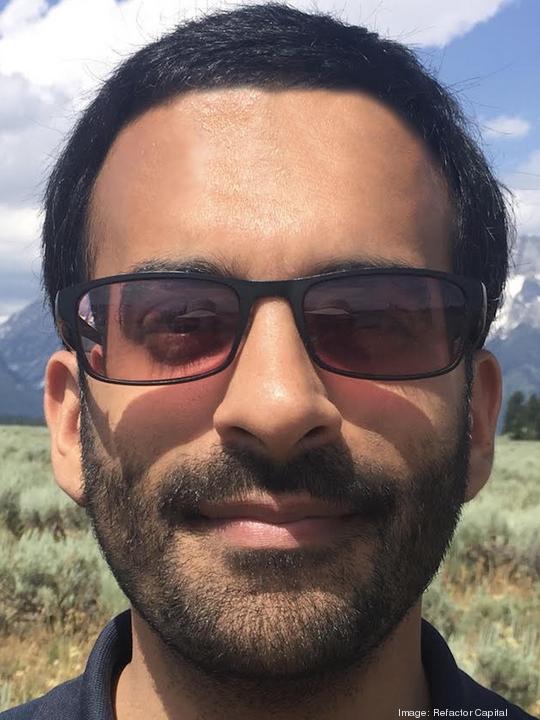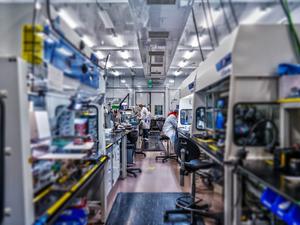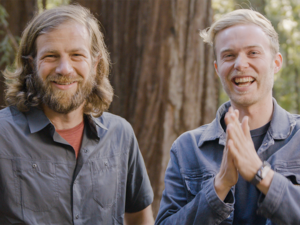
Editor's note: Join the Silicon Valley Business Journal next Tuesday, Aug. 30, for a free virtual event to better understand the shift to an all-electric future. Click here to register.
Who will solve the climate crisis — government leaders or entrepreneurs?
It’s a question that lingers even with the recent breakthrough in Congress, where Democrats managed to deliver President Joe Biden a win on climate legislation. Government funding is nice — and the new law, called the Inflation Reduction Act, puts $369 billion toward climate solutions — but entrepreneurs and venture capitalists say that innovative approaches from businesses are mandatory to make change happen.
One early-stage investor who is focused, in part, on climate change is Zal Bilimoria, the founder of Burlingame-based Refactor Capital. The firm, whose motto is “Rethink industries. Refactor the world,” backs startups focused on biology and health in addition to climate change.
This interview has been edited for length and clarity.
About Zal Bilimoria
- Venture capital career: Founded Refactor Capital in 2016; partner at Andreessen Horowitz from 2013-2016.
- Before venture: Worked for LinkedIn, Netflix, Google and Microsoft in product management roles. Also co-founded content curation startup Sniply.
About Refactor Capital
- Founded: January 2016; Headquarters: Burlingame
- Climate startup investments: Solugen, which uses biology to build chemicals; Mori, which extends the life of perishable foods by using silk protein; Checkerspot, which builds sustainable, algae-based sustainable materials.
Why did you found Refactor Capital? For a decade, I was a product manager at software companies like Google, Netflix and LinkedIn. I got recruited to Andreessen Horowitz as a partner on the investment team about a decade ago, and I started getting into digital health. I helped start the Bio Fund at Andreessen Horowitz in 2015 and then left to start Refactor Capital because I saw a need for seed-stage capital specifically for founders starting companies in bio and health.
What motivated you to introduce climate tech into Refactor’s portfolio? I started Refactor as a bio and health care firm, but a lot of the bio investments I ended up doing were synthetic biology companies that were applying their solutions in food, agriculture, plastics, chemicals, materials. And they had a significant climate impact attached to their visions. So the technology was bio-oriented, but the secondary effects were positive climate change.
An example: about five-and-a-half years ago, I led the seed round in a company called Solugen. What they’re doing is they’re trying to be the next BASF, the next Dow, DuPont. They’re a chemical manufacturer. But instead of using petroleum to manufacture chemicals, they use biology. They use enzymes to create the chemical reactions required to produce these chemicals at scale. And they’re growing rapidly.
The dirty secret is 20% of the world’s petroleum is used to manufacture chemicals. If we could obviously divorce ourselves from using petroleum to create chemicals of all kinds, which is the largest industry on the planet, $6 trillion, we have an opportunity to make a huge dent in the climate change problem because we will be forcing ourselves away from petroleum.
How do political events, like the fight to fund a climate change bill, influence your outlook on the sector? Where is the innovation going to come from? It’s going to come from startups, because they have a sense of urgency. They have unique (intellectual property) and they have a pace of execution that the incumbents don’t have ... I’m actually excited about capitalism being able to help support and solve this problem around the climate crisis and backing amazing founders that can actually go out and build a team of products that can scale and actually drive revenue, actually create sustainable businesses that are high-growth, high-margin and have the ability to make a huge dent in the climate problem.
What excites you the most right now in the field of climate tech, in terms of technologies or startups? A lot of these interesting applications (that) are coming to bear are in food, agriculture, chemicals and materials ... (On the) synthetic biology side, there’s interesting carbon sequestration techniques. One’s called calcification, where you can take CO2 emissions and turn it into limestone and then that limestone can be used to create concrete or any number of materials. There’s all kinds of interesting things you can do by building reactors that could take those CO2 emissions from a water boiler system in a huge industrial office building and turn that into limestone. So there’s all kinds of innovations that get me excited.
How do you approach vetting climate tech companies and getting a clear picture of whether their technologies hold any promise? My job as an investor is to pick people, not necessarily ideas or companies; to pick founders, people who are technically and commercially gifted. Can they build it and can they sell it, as well? Are they going to be great recruiters of people? Are they going to be able to attract customers? Are they going to be able to attract investors? Finding those founders is so critically important because ideas change, markets can change, products can change, strategies can change, but the founders don’t. This is their business. They’re the majority owners for quite some time. And they want to run the business that they want to build. My job is to evaluate people and work with people who I think could fit those criteria.
How do you personally feel about the climate crisis? I’m very scared for my children, my grandchildren, and our society in general. We literally only have one planet and it’s a pretty nice one. I am severely concerned about population growth, the amount of resources that we’re sucking up ... It’s really tough to try to think about this personally, but also professionally. I try to keep (my feelings) relatively divorced because you don’t necessarily want your own personal emotions to be guiding investment decisions. But I am also blessed by being a seed-stage investor, which means I have a very, very long outlook.
These challenges, these products and companies that I’m investing in. They are solving hard problems with complex solutions, so they’re going to take a lot of effort to be able to grow and scale.








